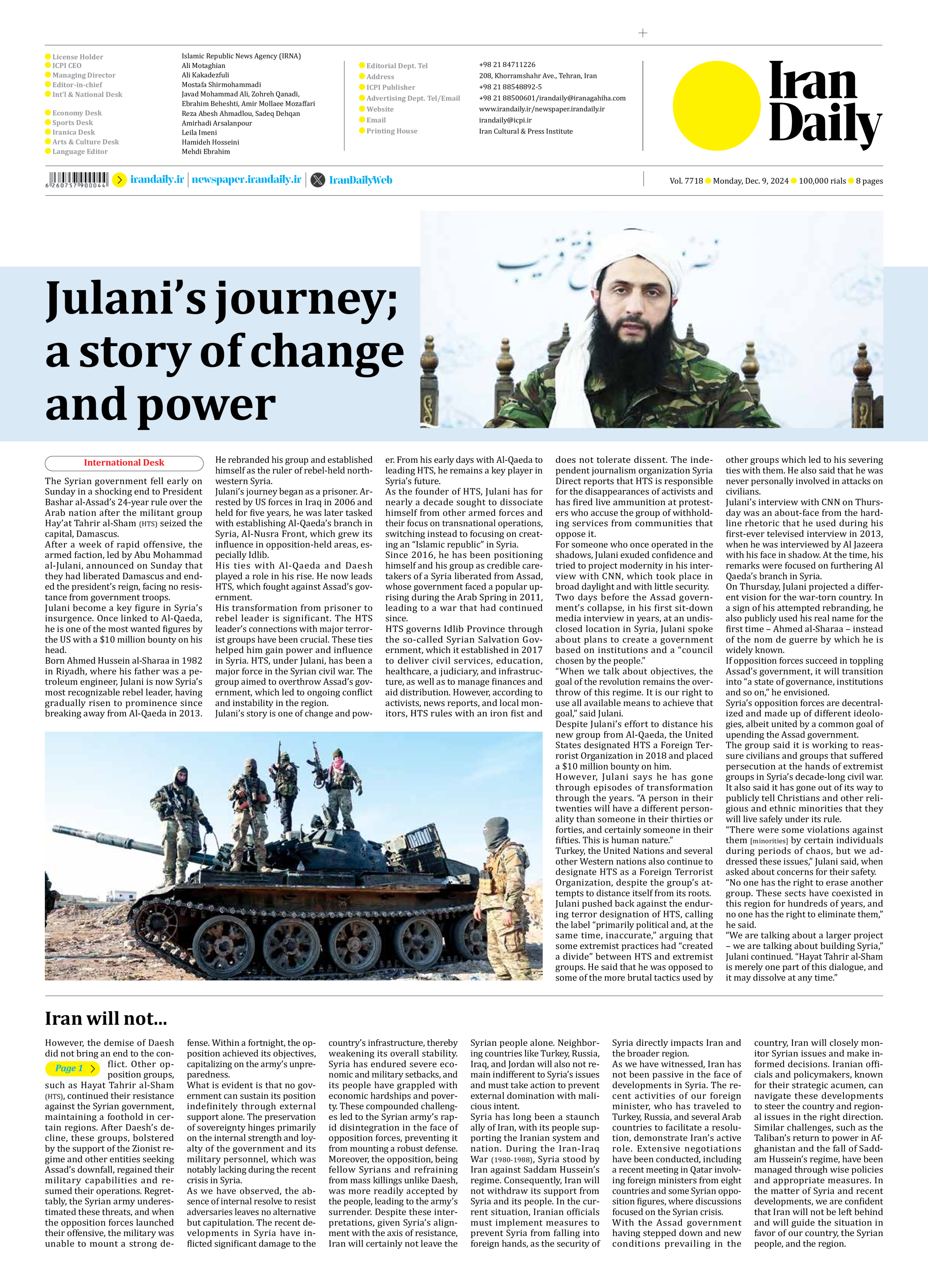
Iran will not...
Page 1
However, the demise of Daesh did not bring an end to the conflict. Other opposition groups, such as Hayat Tahrir al-Sham (HTS), continued their resistance against the Syrian government, maintaining a foothold in certain regions. After Daesh’s decline, these groups, bolstered by the support of the Zionist regime and other entities seeking Assad’s downfall, regained their military capabilities and resumed their operations. Regrettably, the Syrian army underestimated these threats, and when the opposition forces launched their offensive, the military was unable to mount a strong defense. Within a fortnight, the opposition achieved its objectives, capitalizing on the army’s unpreparedness.
What is evident is that no government can sustain its position indefinitely through external support alone. The preservation of sovereignty hinges primarily on the internal strength and loyalty of the government and its military personnel, which was notably lacking during the recent crisis in Syria.
As we have observed, the absence of internal resolve to resist adversaries leaves no alternative but capitulation. The recent developments in Syria have inflicted significant damage to the country’s infrastructure, thereby weakening its overall stability. Syria has endured severe economic and military setbacks, and its people have grappled with economic hardships and poverty. These compounded challenges led to the Syrian army’s rapid disintegration in the face of opposition forces, preventing it from mounting a robust defense.
Moreover, the opposition, being fellow Syrians and refraining from mass killings unlike Daesh, was more readily accepted by the people, leading to the army’s surrender. Despite these interpretations, given Syria’s alignment with the axis of resistance, Iran will certainly not leave the Syrian people alone. Neighboring countries like Turkey, Russia, Iraq, and Jordan will also not remain indifferent to Syria’s issues and must take action to prevent external domination with malicious intent.
Syria has long been a staunch ally of Iran, with its people supporting the Iranian system and nation. During the Iran-Iraq War (1980-1988), Syria stood by Iran against Saddam Hussein’s regime. Consequently, Iran will not withdraw its support from Syria and its people. In the current situation, Iranian officials must implement measures to prevent Syria from falling into foreign hands, as the security of Syria directly impacts Iran and the broader region.
As we have witnessed, Iran has not been passive in the face of developments in Syria. The recent activities of our foreign minister, who has traveled to Turkey, Russia, and several Arab countries to facilitate a resolution, demonstrate Iran’s active role. Extensive negotiations have been conducted, including a recent meeting in Qatar involving foreign ministers from eight countries and some Syrian opposition figures, where discussions focused on the Syrian crisis.
With the Assad government having stepped down and new conditions prevailing in the country, Iran will closely monitor Syrian issues and make informed decisions. Iranian officials and policymakers, known for their strategic acumen, can navigate these developments to steer the country and regional issues in the right direction. Similar challenges, such as the Taliban’s return to power in Afghanistan and the fall of Saddam Hussein’s regime, have been managed through wise policies and appropriate measures. In the matter of Syria and recent developments, we are confident that Iran will not be left behind and will guide the situation in favor of our country, the Syrian people, and the region.







